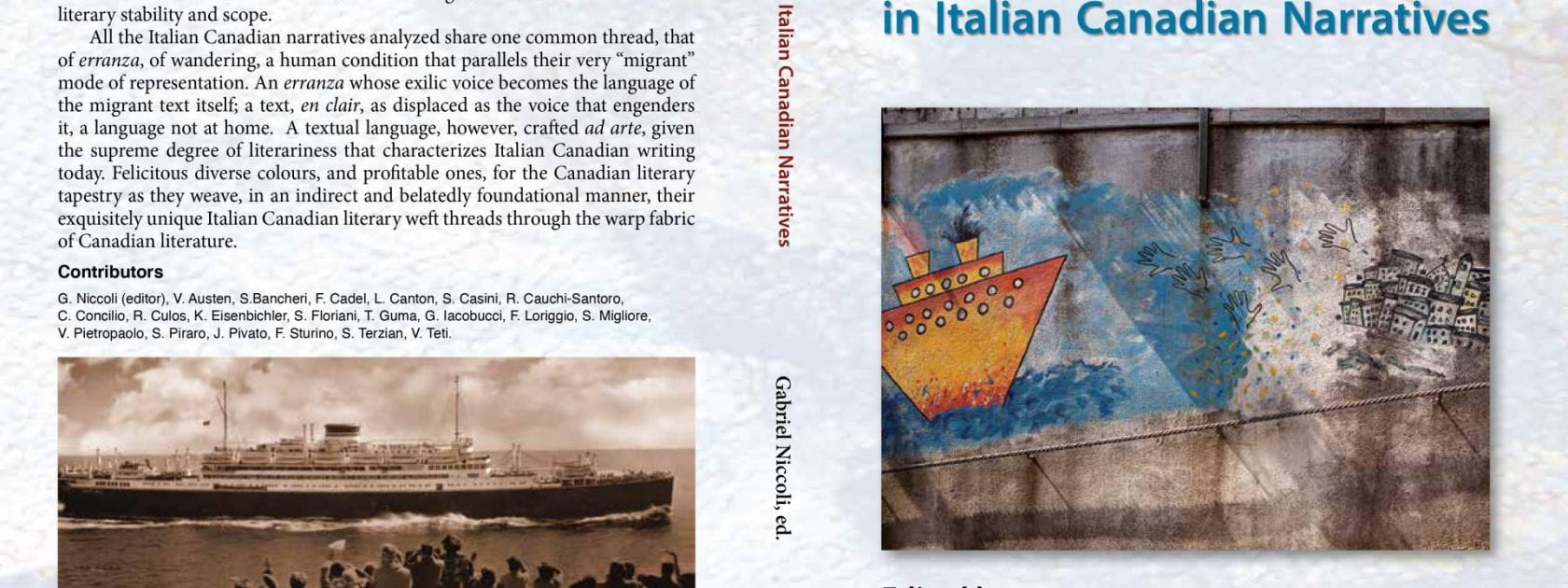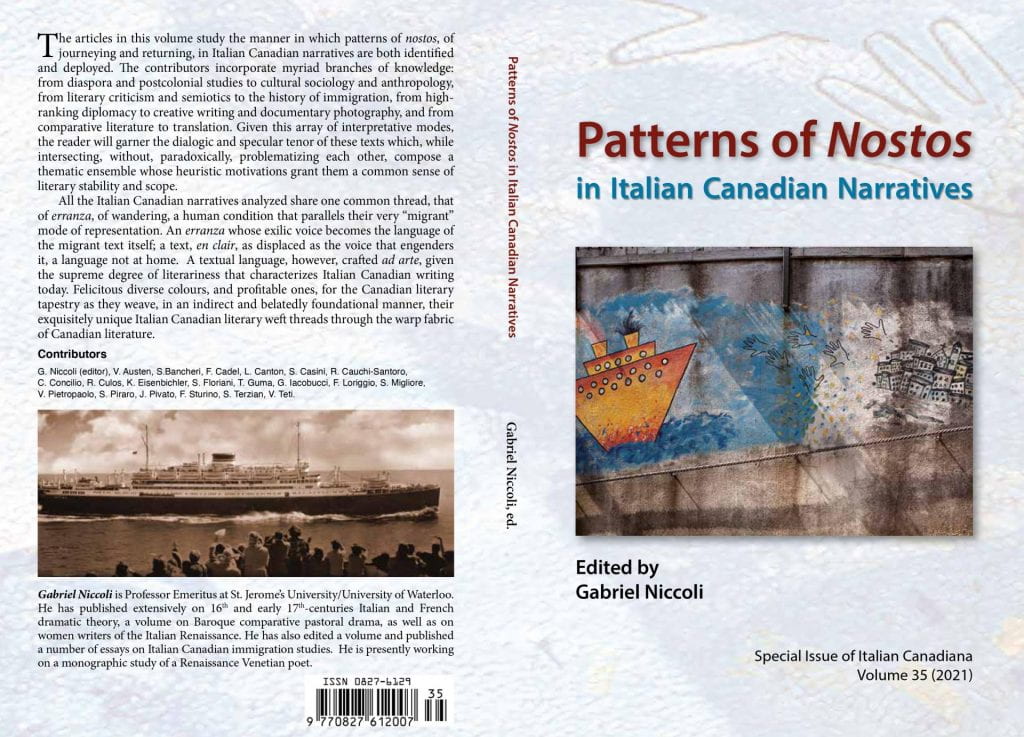The articles in this volume study the manner in which patterns of nostos, of journeying and returning, in Italian Canadian narratives are both identified and deployed. The contributions span from diaspora and postcolonial studies to cultural sociology and anthropology, from literary criticism and semiotics to the history of immigration, from high ranking diplomacy to creative writing and documentary photography, and from comparative literature to translation.
All the Italian Canadian narratives analyzed share one common thread, that of erranza, of wandering, a human condition that parallels their very “migrant” writing and other modes of representation, partly dismantling, as it were, conventional discourse while advancing an alternative to the topical stylistic features of mainstream Canadian Literature. An erranza whose exilic voice becomes the language of the migrant text itself; a text, en clair, as displaced as the voice that engenders it, a language not yet at home.



